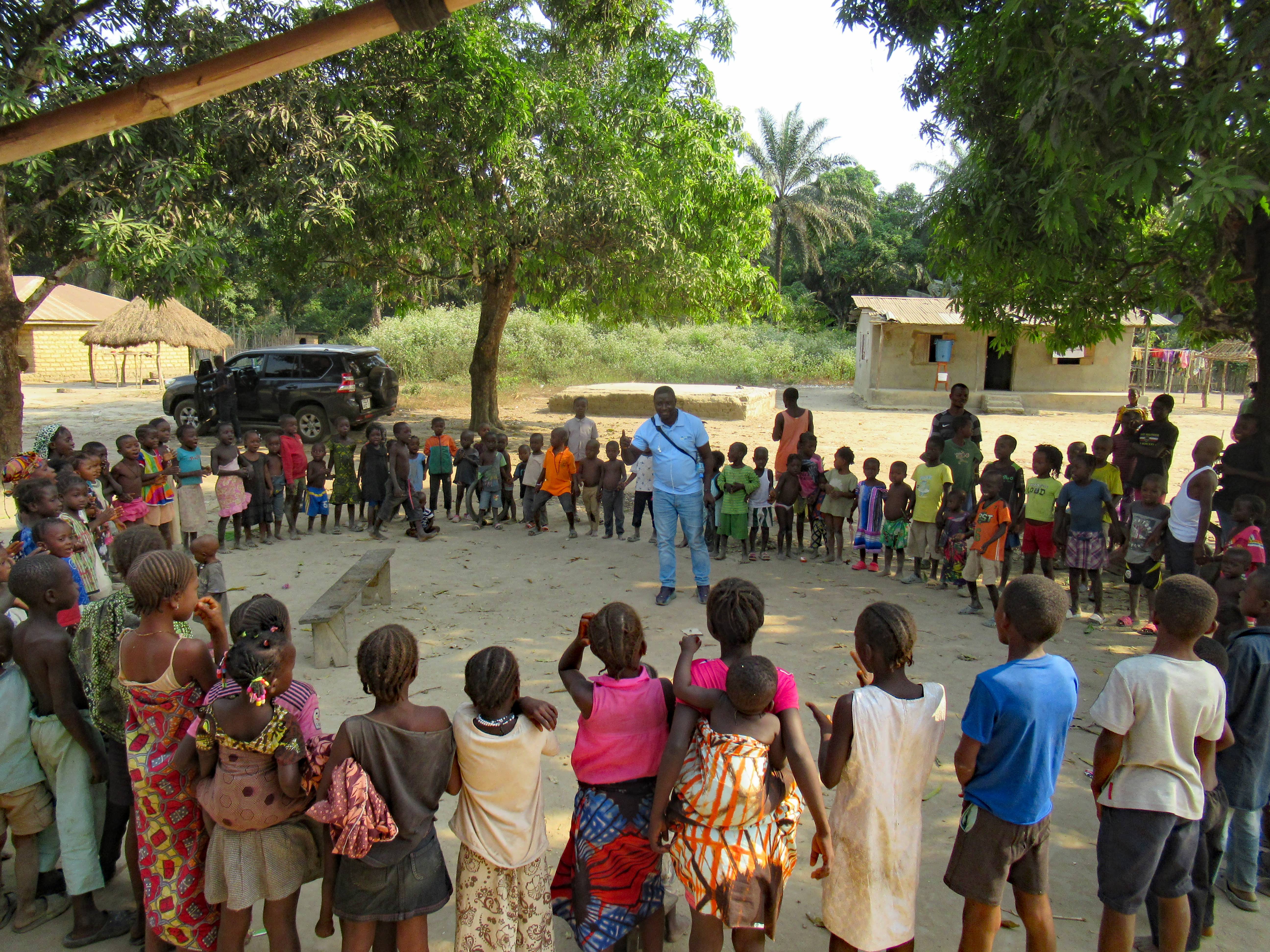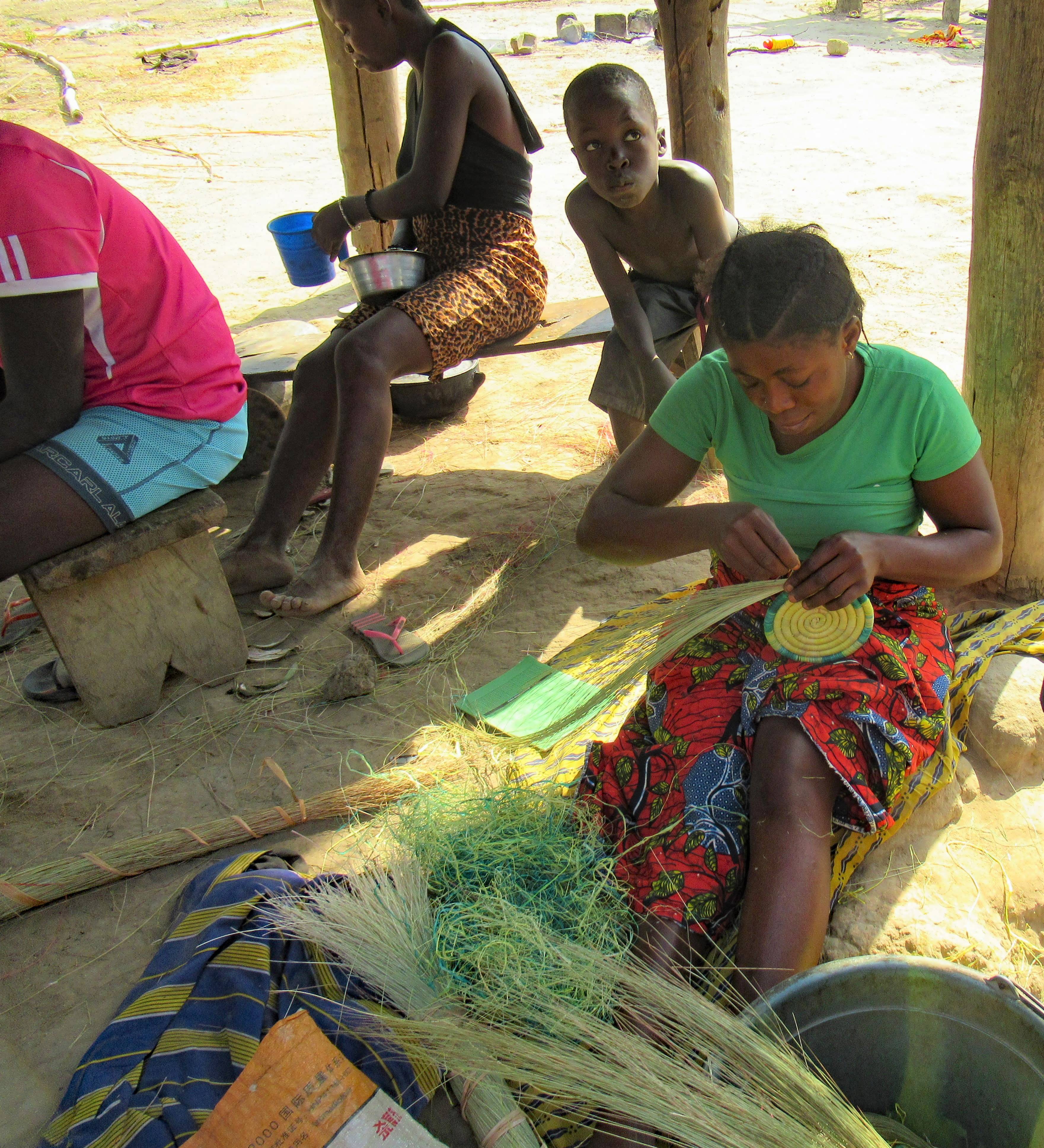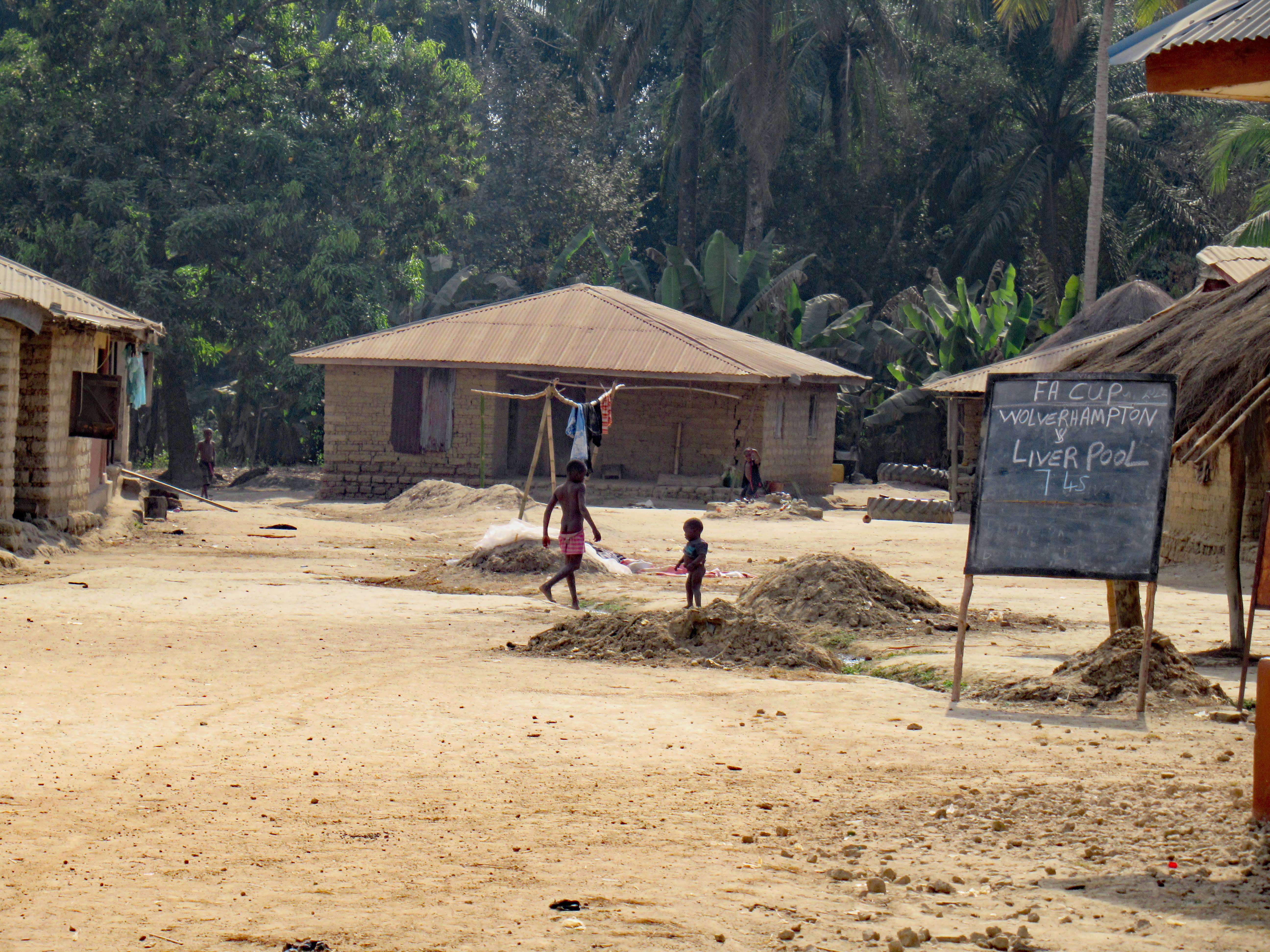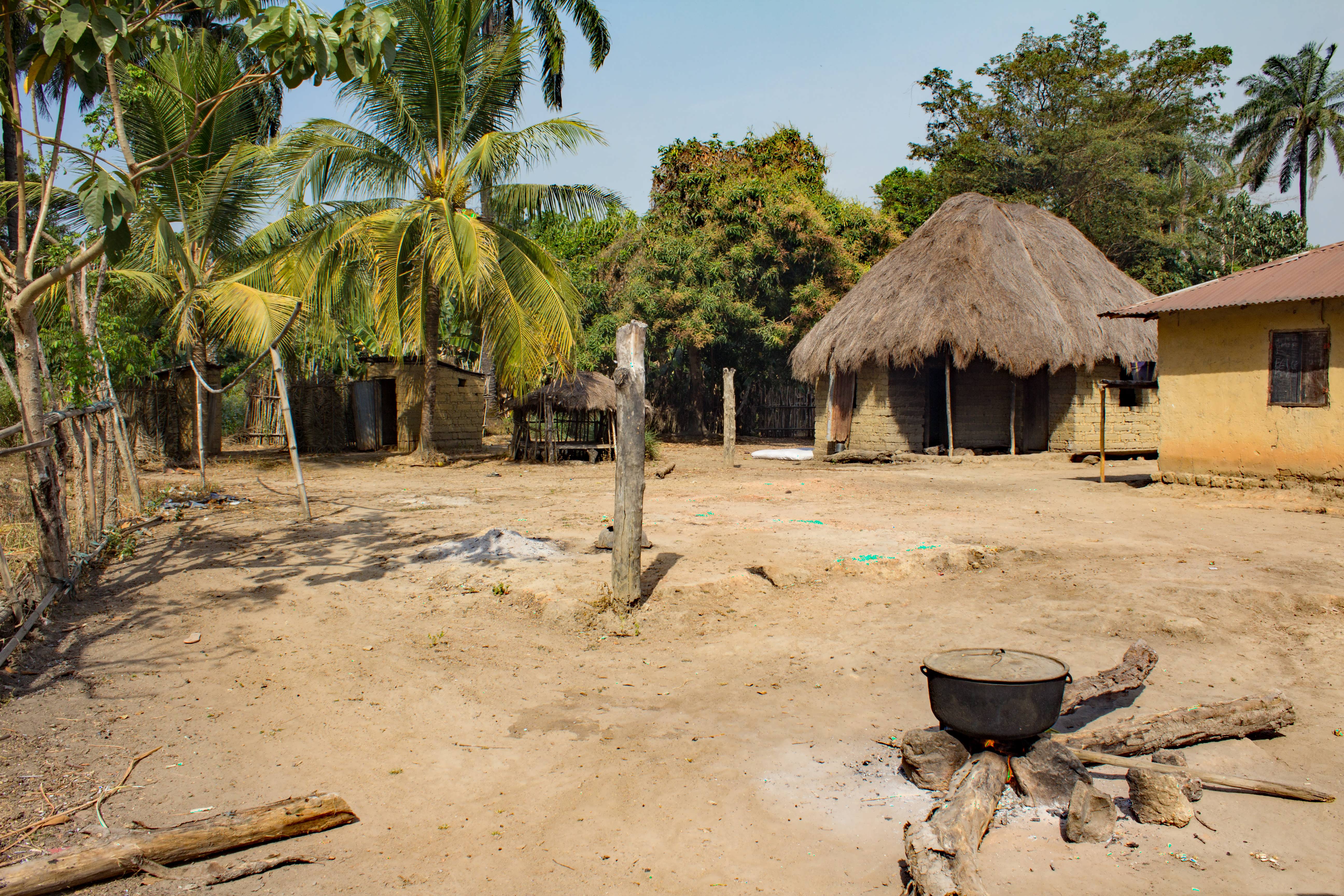Whilst on a tour of Sierra Leone we visited the village of Rogbonko. The name means ‘village in the forest’ and getting there from the nearest town of Makeni, was quite a journey. The first 30 minutes was a paved road, but after turning off at Magburaka, the next 30 minutes involved a bumpy dirt track. However, it was interesting, and the area used to be the highest producer of sugar in the country, until Ebola ended the Chinese operation and the land returned to the community who now use it for growing rice.
Ebola and Covid also ended Rogbonko’s attempts to provide a taste of life in an African village, as we found the tourist accommodation of two brick built sleeping huts, each with two bedrooms and a shared bathroom, was in a state of disrepair, although some attempts were being made to restore the thatched roofs.
The Rogbonko Village Retreat was the idea of Sheka Forna, a British-Sierra Leonean whose father, a prominent politician, was born in the village. His sister, Aminatta is the country’s most famous author with her best seller, The Devil that Danced on the Water (which I read on my return home).
We walked through the village with mud homes on both sides and were immediately assailed by a barrage of children hoping for candies from Abdulai our guide, who was obviously well known. The children loved touching our white skin, and having their photograph taken.
Our village tour took us past women weaving coloured raffia into placemats and baskets, but it wasn’t clear whether they were for sale, and there wasn’t the hard sell which often comes with this kind of enterprise. Other women were pounding casava, cooking palm kernels to extract the oil, or preparing the evening meal on an open fire. We also saw the temporary Médecins Sans Frontières clinic, who are attempting to treat and educate the 500 villagers about malaria and diarrhoea.
Subsistence farming is the way of life, and as the sheep and goats were in the surrounding hills, there were few men around. However, this was all set to change as a chalkboard advertised the Wolverhampton v Liverpool FA cup match later that evening and we learned that one person in the village has a TV and satellite dish, and everyone gathers round.
Having told the children to race to the mango tree, and wait for him, it became apparent that Abdulai would not have enough sweets for the 50 or so children (families of up to nine children are common), and we expected a scrum down. However, along with the village elders, who provided additional sweets, the children were marshalled into a large circle to sing songs. As guest of honour, I was summoned into the middle, for the distribution of the sweets, with children randomly being invited to come and take one from me, before being ushered outside the circle to avoid them returning. It was amazing to see how one single boiled sweet brought so much joy to a child, and to the adults who slipped through the net!












